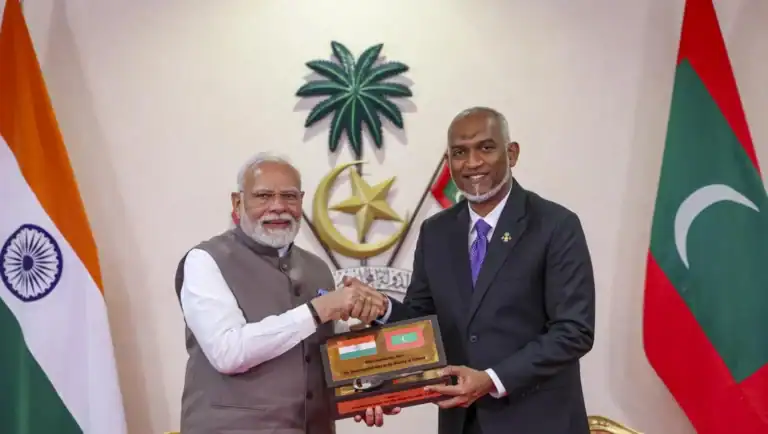“China Breaks Silence on US Move Against Terror Group Linked to Pahalgam Massacre”
In the wake of the United States designating The Resistance Front (TRF)—a proxy of the Pakistan-based Lashkar-e-Tayyiba (LeT)—as a Foreign Terrorist Organisation (FTO), China has responded with caution, emphasizing regional stability over confrontation. This response has sparked international discussion, given the growing concerns about cross-border terrorism and geopolitical posturing in South Asia.
🇺🇸 US Declares TRF a Global Threat
The announcement by US Secretary of State Marco Rubio signals a firm stand against TRF, particularly for its alleged involvement in the April 22 Pahalgam terror attack, which left deep scars in Kashmir. The designation as both a Foreign Terrorist Organisation and a Specially Designated Global Terrorist (SDGT) comes with serious implications, including financial sanctions and international monitoring.
The US has also indicated that this decision could carry over to the United Nations, specifically the UN Security Council’s 1267 Committee, which oversees sanctions on terrorist groups and their members. This move raises pressure on countries with influence over these organizations, most notably, Pakistan and its close ally, China.
🇨🇳 China’s Strategic Silence and Subtle Messaging
China’s reaction, delivered by Foreign Ministry spokesperson Lin Jian, avoided naming Pakistan directly. Instead, the statement focused on condemning the Pahalgam attack and called for regional cooperation in counterterrorism efforts. Lin said, “China firmly opposes all forms of terrorism,” but stopped short of endorsing the US action or acknowledging TRF’s Pakistan links.
This is consistent with China’s long-standing diplomatic tightrope walk in the region: balancing strategic ties with Pakistan, its key Belt and Road partner, while managing its global image in forums like the UN.
Why China’s Stance Matters
China holds veto power at the UN Security Council and has previously blocked efforts to blacklist terrorists like Masood Azhar, citing procedural reasons. Its guarded approach now indicates that while it wants to appear firm on terrorism, it avoids moves that could strain relations with Islamabad.
Moreover, as India pushes for international recognition of Pakistan-based terror groups’ threats, China’s position could influence how swiftly or strongly the global community responds, especially at a time when India seeks more support on cross-border terrorism.
A Call or a Deflection?
By urging regional countries to “enhance counterterrorism cooperation,” China appears to be taking a diplomatic middle path—neither opposing the US outright nor fully backing the sanctions. But critics argue this response sidesteps accountability and fails to directly address the root cause: state-backed terrorism originating in Pakistan.
Conclusion: Diplomacy or Delay?
While the US has made a bold move in naming and shaming terror proxies, China’s muted stance reflects the complex geopolitics of South Asia, where diplomacy, trade, and military alliances intertwine with national security agendas.
The world will now watch closely, especially as the issue moves to the UN Security Council, where global players must decide whether political alliances outweigh collective security.






